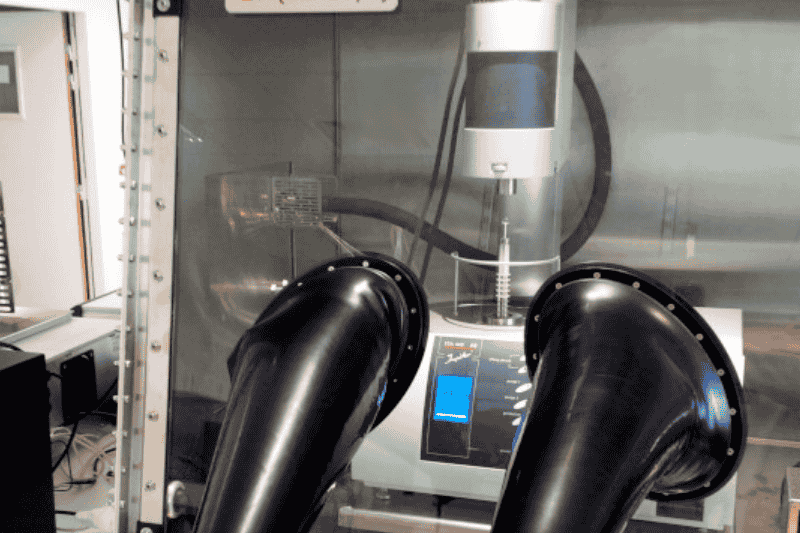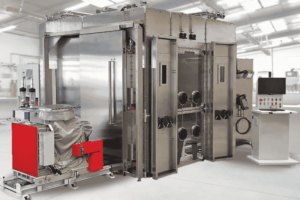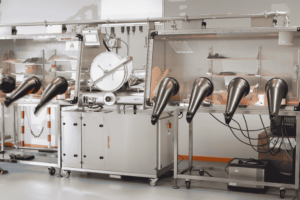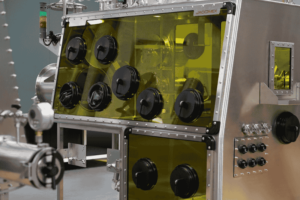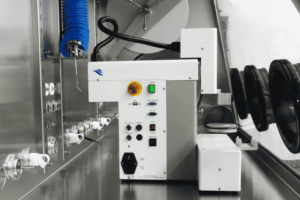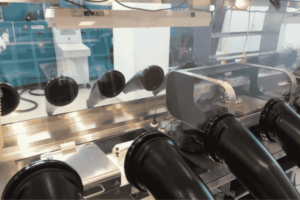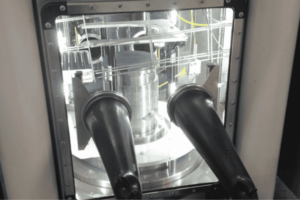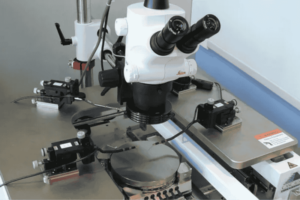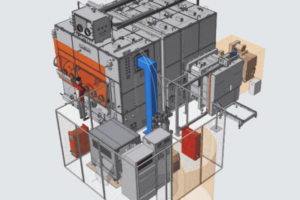Thermogravimetric Analysis (TGA) for Glove Boxes
Overview
Thermogravimetric Analysis (TGA)
Description
- Thermal analysis that allows the measurement of mass variation of a sample over a specific time period.
- Characterization of materials, particularly in the field of batteries and nuclear power.
Technical specifications - Information
Technical specifications of Thermogravimetric Analysis (TGA) for Glove Boxes:
|
A glove box interfaced to an TGA thermogravimetric balance often coupled with DSC differential scanning calorimetry allows sample preparation and direct transfer to the analysis chamber without exposure to air.
|
|
Integration by Jacomex’s design office of the various systems used on the market.
|
|
Tightness class 1.
|
|
Taking into account the size, the stability of the atmosphere (purity, temperature…).
|
Materials Characterization
With the development of composites and advanced materials used in energy conversion, new technologies, lithium batteries, aeronautics, microelectronics or even innovative reactors, it is essential to carry out a characterization of materials during the various stages of development. This step allows scientists and engineers to determine the new charateristics.
Among the advanced materials that require an analysis of physico-chemical properties under a controlled atmosphere, there are composites, hybrid and carbonaceous materials, nanomaterials, biomaterials and functional materials.
Coupling of Thermogravimetric Analysis (TGA) to Other Analysis Techniques and Information Obtained
The thermogravimetric analysis is coupled to another DSC measurement. The coupling makes it possible to determine if the losses of masses are related to endothermic, athermic or exothermic phenomena.
The thermogravimetric analysis can also be coupled to a moisture generator dedicated to the sweep gas, a Wetsys system. The coupling of the TGA to a mass spectrometer and/or a gas chromatograph is also possible. This coupling allows the identification of compounds that have been mixed in the carrier gas during the experiment.
The effects of evaporation, desorption, thermal decomposition, oxidation, sublimation, reduction, absorption etc. can be observed with the Thermogravimetric Analysis. It allows the determination of the thermal stability of compounds, the determination of certain volatile compounds in a solid sample and the determination of the temperatures under which chemical reactions take place.
Have a project?
Our experts will provide you with an answer adapted to your needs as soon as possible.
Equipment and Features
See our related products
Contact form
Need help or an offer? Contact us

